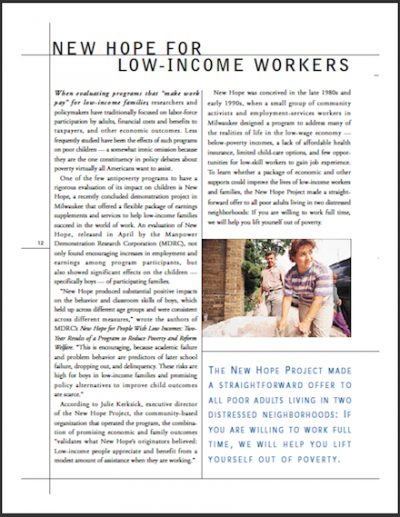Survey Says..
Boys whose parents were in New Hope had improved academic performance, study skills, social competence and behavior relative to their control group peers, according to teacher surveys.

In 1994, Milwaukee implemented a two-year program, New Hope, that provided low-income working families with a flexible package of earnings supplements and services. The results? Glorious. Parents benefited from a boost in employment and earnings. Equally noteworthy: Their kids — specifically their sons — had fewer behavioral issues and better academic success.
This report is from the Summer 1999 edition of AdvoCasey, a seasonal newsletter with themed issues that spotlight programs and policies making measurable differences in the lives of kids and families.
In exchange for working at least 30 hours a week, New Hope families were eligible for income supplements, affordable health insurance, child-care subsidies and minimum-wage community service jobs. Experts have rigorously evaluated the antipoverty program’s impact on participating parents and — more noteworthy — their poor children.
We hope you'll find value in this report. We’d love to get a little information from you, which we'll use to notify you about relevant new resources.